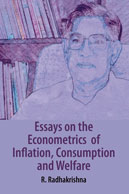New Releases...
Download Catalogue...
Download Excel Data
Download PDF Catalogue
You will get a Excel file with detail about catalogue.
You will get PDF file with detail about catalogue.
Detailed info...
Integrating the Rural Poor into Markets
Bibek Debroy‚ Amir Ullah Khan
About the Book
<p>As the editors Bibek Debroy and Amir Ullah Khan put it :</p>
<p> </p>
<p>"Agriculture may account for only 25% of GDP. But 70% of India's population earns a living from the rural sector. If there is a perception in India that liberalization has been anti-poor and pro-rich, that is largely because the agricultural cum rural sector has been untouched...</p>
<p> </p>
<p>"After the recent (2004) elections, negative expectations about reforms concern privatization and labour market reforms. On the positive side, there are expectations that agro and rural reforms will finally get off the ground, after having been talked about ad nauseam.... If these expectations materialize, parts of India that are hitherto bypassed and marginalized in the growth process, will be mainstreamed. If one is looking for a reform agenda for such liberalization, this volume provides it. The agenda set out in these 17 papers is by no means exhaustive. But collectively, one obtains a very good idea of what needs to be done to bring the rural poor into interaction with markets, so that they can tap the opportunities that market-based liberalization throws up."</p>
Praise for this book
“With the new government set to focus its efforts on the rural poor, this series of essays is timely and informative. Looks at subjects like US subsidies, microfinance, and drip irrigation.”
— Hindustan Times
About the Author(s) / Editor(s)
<p><strong>BIBEK DEBROY</strong> is Director of the Rajiv Gandhi Institute for Contemporary Studies, Rajiv Gandhi Foundation, New Delhi. He is a professional economist and was educated in Presidency College (Calcutta), Delhi School of Economics and Trinity College (Cambridge). He has worked at Presidency College (Calcutta), Gokhale Institute of Politics and Economics (Pune), Indian Institute of Foreign Trade (Delhi), National Council of Applied Economic Research (Delhi) and as Consultant, Department of Economic Affairs, Ministry of Finance, Government of India. He was also the Director for a project known as LARGE, set up by the Ministry of Finance and UNDP to examine legal reforms. He has been a member of several government committees. He is the author and editor of several books, papers and popular articles and is also Consulting Editor with Financial Express. Bibek Debroy's special interests are international trade (in particular the WTO), law reform and the political economy of liberalization in India.</p>
<p> </p>
<p> </p>
<p><strong>AMIR ULLAH KHAN</strong> graduated in Electronics Engineering from Osmania and studied at IRMA. For his PhD he was worked on Intellectual Property Issues. In 1993, he joined the Indian Civil Services, quit and worked with Project LARGE of the UNDP. He taught Economics and Management at the Indian School of Finance and Management in New Delhi, Madras and London. He then worked as Executive Director, Encyclopaedia Britannica India. He is now a Fellow at the India Development Foundation</p>
<p> </p>
<p><br />
<strong>INDIA DEVELOPMENT FOUNDATION (IDF) :</strong> <br />
INDIA DEVELOPMENT FOUNDATION (IDF) is a privately funded, non-profit, non-partisan think tank set up as a Trust on April 2, 2003. Its objective is to develop awareness about how markets work, why they are desirable and how to develop them. IDF helps policymakers transform emerging economies into market based societies. Its recommendations are derived from research and analysis. IDF then generates a blue-print of how to implement the recommendations. These are worked out through interaction with practitioners and stakeholders. IDF's work is disseminated through publications in peer-reviewed journals, workshops, seminars and various media to reach out to practitioners, policymakers and the general public. It also undertakes pilot projects to demonstrate how its recommendations can be realized.</p>
<p> </p>
<p><br />
<strong>INTERNATIONAL DEVELOPMENT ENTERPRISES, INDIA (IDEI): </strong> <br />
INTERNATIONAL DEVELOPMENT ENTERPRISES, INDIA (IDEI) is an Indian not-for-profit organisation. IDEI's approach to rural development focuses on market opportunities as the driving force for poverty reduction. Development interventions are required to remove basic market constraints, enabling the rural poor to participate in markets both as customers of purchased inputs and as suppliers of high-value products. The income generation through market participation will allow smallholders to access food, education, health, housing, water etc. and thus escape income poverty. Having successfully increased the annual incomes of a customer base of half a million smallholder farmers and small businessmen and women, IDEI continues to work with private enterprises to Integrate Poor into Market Systems (IPMAS).</p>
Contributors
<p><strong>Amitabha Sadangi</strong> has spent 22 years in various aspects of rural development work. He first joined IDE International in 1992, served as the Country Director of IDE Sri Lanka, and served as Deputy Country Director of IDE International’s India programme till September 2001. He has worked in all aspects of IDE India --- programme design, field programme management, staffing, finances, marketing, strategic planning, fund raising, donor relations and new product development. He has represented IDE in a number of international settings. He is a founding member of the IDE (India) board, and has been selected to serve as the first Executive Director of IDE (India).</p>
<p> </p>
<p><br />
<strong>Amir Ullah Khan,</strong> currently at the Indian Development Foundation, studied at the Osmania University, Hyderabad and the Institute of Rural Management at Anand. For his PhD he has worked on Intellectual Property Issues in International Trade In 1993, he joined the Indian Civil Service after which he worked for five years with project LARGE of the UNDP. He taught Economics and Management at the School of Finance and Management and subsequently worked as Executive Director and Editor, Encyclopaedia Britannica India.</p>
<p> </p>
<p><br />
<strong>Ashutosh A.T.</strong> is an IAS officer of the 2002 batch and is currently serving as Assistant Collector in Jodhpur, Rajasthan. He has done his BA in Economics and holds a Management degree. He has previously served as a journalist with the Grand Forks Gazette, Canada. He writes on various developmental issues concerning rural India.</p>
<p> </p>
<p><br />
<strong>Bibek Debroy</strong> is Director, Rajiv Gandhi Institute for Contemporary Studies, Rajiv Gandhi Foundation, New Delhi. He is a professional economist and was educated in Presidency College (Calcutta), Delhi School of Economics and Trinity College (Cambridge). He has worked at Presidency College (Calcutta), Gokhale Institute of Politics and Economics (Pune), Indian Institute of Foreign Trade (Delhi), National Council of Applied Economic Research (Delhi) and as Consultant, Department of Economic Affairs, Ministry of Finance, Government of India. He was also the Director for a project known as LARGE, set up by the Ministry of Finance and UNDP to examine legal reforms. He has been a member of several government committees. He is the author and editor of several books, papers and popular articles and is also Consulting Editor with Financial Express. Bibek Debroy’s special interests are international trade (in particular the WTO), law reform and the political economy of liberalization in India.</p>
<p> </p>
<p><br />
<strong>Naresh C. Saxena </strong>is currently advising several international donors on food security, poverty alleviation, natural resource management, good gover-nance, and peoples’ participation. He is a member of Royal Swedish Academy of Agriculture and Forestry, Stockholm, and of the ADB Institute Advisory Council, Tokyo. Earlier, he was awarded a senior Post-Doctorate Fellowship from the Rockefeller Foundation to do research at the Univer-sity of Oxford (1989-92), which resulted in Ph.D on Agro-forestry in India. He has been a Visiting Fellow to the IDS, Sussex, and CIFOR, Indonesia. Dr. Saxena also worked for Government of India as Secretary, Planning Commission (1999-2002) Secretary, Rural Development (1997-99), and Director, LBS National Academy of Administration, Mussoorie (1993-96).</p>
<p> </p>
<p><br />
<strong>Nirvikar Singh</strong> is currently Director of the Business Management Economics Programme at the University of California, Santa Cruz, where he is Professor of Economics. He was a founding co-director of the Santa Cruz Center for International Economics (SCCIE), and served as coordinator (lead co-director) of SCCIE in 2001-03. He served as Chair of the Department of Economics from 1992 to 1995. He has held visiting research appointments at Stanford, Australian National University, and several institutions in India. He has served as an advisor for several high-tech start-ups. He received his PhD from the University of California, Berkeley, and his BSc and MSc from the London School of Economics, where he was awarded the Allyn Young Prize, Gonner Prize and Ely Devons Prize. His current research topics include information technology and development, governance and economic reform in India, federalism, electronic commerce, business strategy, and innovation. He has authored over 70 research papers on these and related topics in economics.</p>
<p> </p>
<p><br />
<strong>Qamar Iqbal Khan</strong> is a senior officer in the Department of Agriculture, Andhra Pradesh. He is a postgraduate in Agriculture with specialization in Soil & Water Management with a Ph.D in Remote Sensing Applications in Watershed Management. He has also obtained a PG Diploma in Remote Sensing for Agriculture & Soils from Indian Institute of Remote Sensing, Dehradun. He has vast experience in Soil Survey and Land Use Planning using Remote Sensing and GIS techniques.</p>
<p> </p>
<p><br />
<strong>Rajesh Chakrabarti,</strong> Assistant Professor of Finance at Georgia Tech’s College of Management, is also the Chief Economist for the Kolkata-based microfinance research and training organization, Creditwatch and a scholar at the India Development Foundation, Gurgaon. Educated at Presidency College, Kolkata and IIM, Ahmedabad, Rajesh has a Ph.D. in Management from the University of California, Los Angeles. He has previously been with IFCI, New Delhi, taught at the University of Alberta, Canada and at IIM, Calcutta, and has been a visiting scholar at the Federal Reserve Bank of Atlanta. He publishes regularly in reputed academic journals and has co-authored The Asian Manager’s Handbook of E-Commerce.</p>
<p> </p>
<p><br />
<strong>Riyazuddin Ahmed </strong>is a Principal Scientist in the Division of Soil Science and Agriculture Chemistry, ANGR Agricultural University, Rajendranagar, Andhra Pradesh. He has pursued his Masters and Doctorate degrees in Soil Science and Agricultural Chemistry. He is a co-author of the Extension Bulletin, Soil Test Based Fertiliser Applications, published by ANGR Agricultural University. He is currently working on the conjunctive use of organic manure and inorganic fertilizers in appropriate dozes for various crops.</p>
<p> </p>
<p><br />
<strong>Saleema Razvi </strong>works for GE Capital at Gurgaon. After her schooling at La Martiniere in Calcutta, she studied at the Women’s Christian College, Chennai, where she did her Masters in Nutrition and Dietetics. She then completed her M.Phil in Public Health and is currently a Research Scholar at the Centre for Social Medicine and Community Health, Jawaharlal Nehru University. She has worked with the National Council for Applied Economic Research and EPOS Health Consultants, both in Delhi. Her areas of interest include Health insurance, Public Health, Health Economics, Maternal and Child health, Consumer issues, and Food safety regulation.</p>
<p><br />
<strong>Samrat Bose</strong> is a Masters in Economics from Jamia Millia Islamia. His research projects have included constructing indicators on national highways, analyzing effects of tariffs in the manufacturing sector and studying the impact of taxes on handlooms. At present, he is working on taxation modeling, food security and resource generation in agriculture.</p>
<p> </p>
<p><br />
<strong>Sanjiv J. Phansalkar</strong> was trained in management in the Indian Institute of Management Ahmedabad from which he first completed PGP in 1979 and then his Doctorate in 1989. He taught at the Institute of Rural Management, Anand. His publications include three books, several research papers and a number of cases, case studies and newspaper articles. Based in Nagpur, he works now as a consultant specializing in the issues connected with enhancement of rural livelihoods in the country.</p>
<p> </p>
<p><br />
<strong>Shabana Zahoor</strong> graduated from Aligarh Muslim University with Botany (Hons.). She obtained her Master’s degree in Environmental Botany from Jamia Hamdard, New Delhi in 2003. She has with Gene Campaign, a Delhi-based non-governmental organization. Her areas of work in Gene Campaign were genetic engineering and genetically modified foods (GM Foods) and their implications. There she also contributed in preparing a resource guide for the Consumers International Asia Pacific Office under the Food and Nutrition Programme, 2002-2005.</p>
<p> </p>
<p><br />
<strong>Shagun Krishnan</strong> did her M.A. in Economics from Jamia Milia Islamia, Delhi. Prior to joining IDF in Bangalore, she was a senior researcher with Deepak Talwar Associates, Delhi, working in market research for various sectors. During this tenure she was involved in analysing the insurance, telecom and automobile sectors and was also involved in industry updates to the Indian arm of various global companies and company websites. She was with the Indian Council of Research on International Economic Relations (ICRIER), focusing primarily on trade and international relations. She has also taught economics at the graduate level. Her areas of interest are environment and health.</p>
<p> </p>
<p><br />
<strong>Shashwat Mody</strong> graduated from Hiram College, Ohio, USA with a Bachelor’s of Arts Degree. His majors included Economics and Management with a minor in Mathematics. His research and academic interests include agricultural economics, developmental economics and financial markets. He was a visitor at IDF and worked on issues related to the SPS agreement of the WTO, the tax structure in India and the competitiveness of Indian agriculture.</p>
<p><br />
<strong>Shubhashis Gangopadhyay </strong>did his Ph.D. in Economics from Cornell University, Ithaca, New York, USA. He joined the Delhi Centre of the Indian Statistical Institute as a lecturer in 1983. He became a full Professor in 1991. He took over as founder-director of IDF in July 2002. He has published widely in journals on development economics, international trade, industrial organization, regulatory economics and finance. He has also co-authored and co-edited a number of books in economics and finance. He is the Chief Editor of the Journal of Emerging Market Finance and is the President of two professional societies, the Society for Economic Research and Financial Analysis (SERFA) and the Society for the Promotion of Game Theory and its Applications (SPGTA). He has been on many government committees and consulted with various ministries and private business.</p>
<p> </p>
<p><br />
<strong>Sugata Ghosh</strong> is currently Head (Commissioning) at Macmillan India. He has previously worked at Esconet, Britannica India and the Financial Express. After his M Phil he was a Ford Foundation fellow at the University of Reading. Sugata’s interests cover issues related to the health sector, the agriculture policy, and the industrial and political environment.</p>
<p><br />
<strong>Sutirtha Bhattacharya</strong> is a senior IAS officer of the Andhra Pradesh cadre. He is a postgraduate in Physics and Operations Research from Presidency College, Kolkata. Apart from serving in district administration, he has served in the field of jute development. Currently he is the Commissioner for Agriculture, Government of Andhra Pradesh, working for the development of agriculture and sustainable land management through watershed development, soil health management, land reclamation etc.</p>
<p> </p>
<p><br />
<strong>Wilima Wadhwa </strong>did her Ph.D. in Economics from the University of California, Irvine (UCI), USA. She is the Executive Director of Society for Economic Research and Financial Analysis (SERFA) and teaches at UCI in their spring quarter. She has also taught at the Delhi Centre of the Indian Statistical Institute and Jawaharlal Nehru University. She is an applied econometrician working in the areas of macroeconomics, monetary economics, and development. She has consulted with various ministries and international organizations on macro-econometric and other studies on the Indian economy.</p>
Print Brochure...
Print as it is
Customised brochure
You will get a printout of what you see on your screen under 'Detailed Info'(Uneditable).
You will have the opportunity to edit the text and adjust the extent to fit on A4 size sheet or more accordingly as you desire. Plus, you can download the edited/customised Brochure or simply print it (CTRL + P).


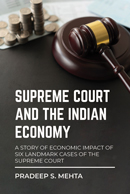



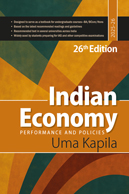
-web-194.jpg)
-front.jpg)
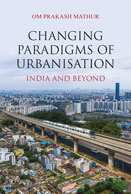






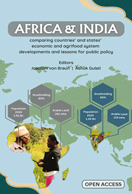
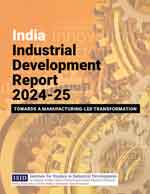
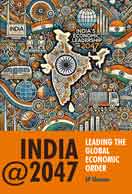
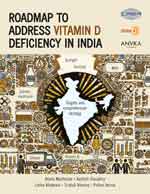
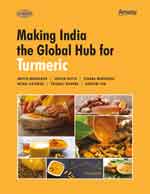
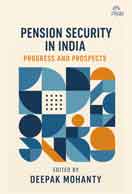
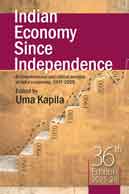
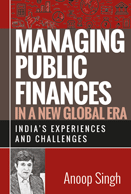
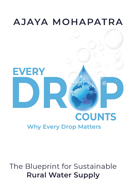
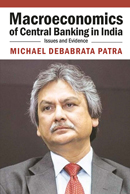

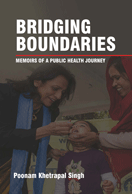

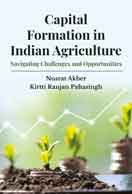



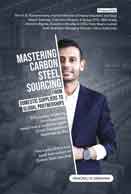







-COVER-web-194.jpg)





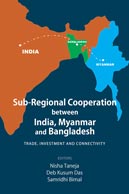






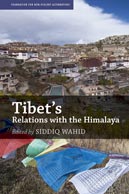



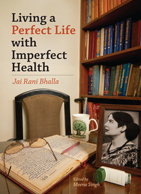












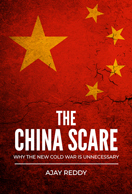
.jpg)






